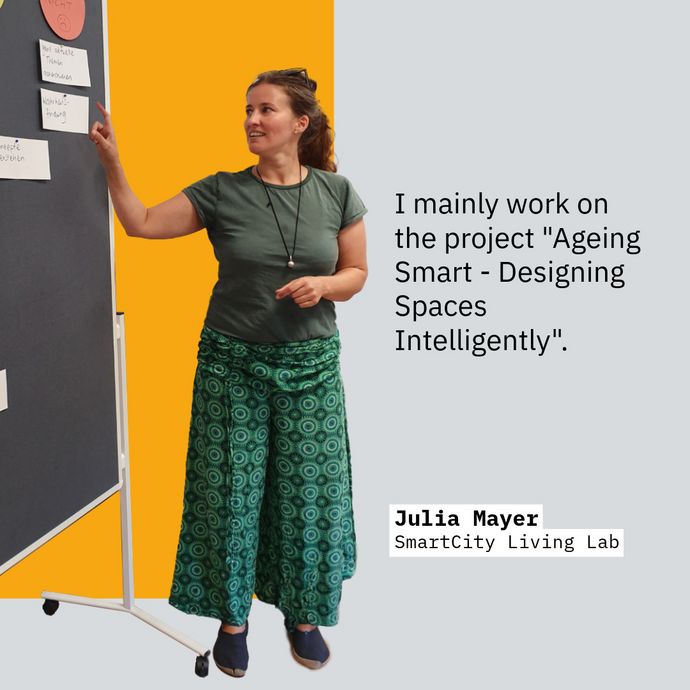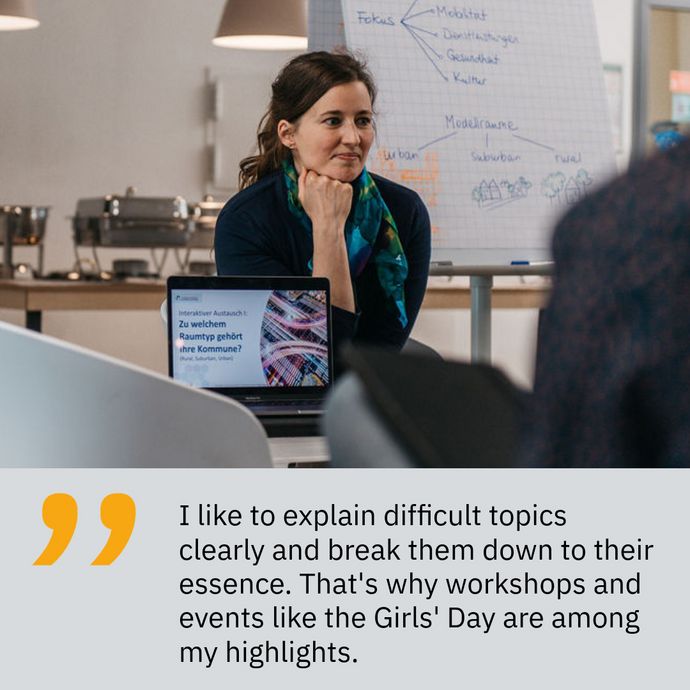

Please introduce yourself briefly and describe your current role at DFKI
My name is Julia Mayer, I studied mathematics in Mainz and have been working at DFKI for almost three years now. I mainly work on the project "Ageing Smart - Designing Spaces Intelligently". In this project, we are developing a decision support system to help municipal stakeholders meet the challenges of demographic change. One approach is to visualize the reachability of doctors with different means of traffic and in different residential areas. In areas where sufficient healthcare provision is not ensured, we want to highlight possible recommendations for action and their impact.
In which of the 28 research departments do you work at DFKI?
I’m a researcher at the SmartCity Living Lab, which is part of the Smart Data and Knowledge Services Department in Kaiserslautern. Together with various cooperation partners, including the city of Kaiserslautern, we work on topics related to the city of the future. These are very diverse, and results often have a direct impact: For example, we use floating car data to find out in which areas drivers frequently search for free parking spaces and how far they have to travel as a result. This information can help traffic planners to make informed decisions or monitor effects of measures already taken. In general, a lot revolves around data management, data governance and quality of urban data.
What are you working on at the moment, or in other words, what are your plans for saving the world?
Among other things, I am working on how to assess the quality of urban data in terms of completeness and representation of different population groups. When data serves as the basis for AI solutions, it is often not adequately communicated that, for example, certain groups of people are not represented in the data. Homeless individuals and NATO personnel, for instance, are not captured in municipal registration records. I am working on identifying and highlighting these gaps.

What are your strengths and what has been your greatest success or favourite experience so far?
Some of my strengths are certainly that I can take things to a meta-level, think very logically and work in a structured way. At the same time, I guess I can explain difficult topics clearly and break them down to their essence. That's why workshops and events like the Girls' Day, where I can work on SmartCity-related topics with interested laypeople and have some fun, are among my highlights.
What do you enjoy most about your job at DFKI? What inspires and fascinates you?
I think it's great that I can use my knowledge and skills to (hopefully) do something good and beneficial for our society, in particular for people who are often disadvantaged. At the same time, I can learn a lot and develop myself further. The respectful way my team treats each other, and their socially responsible attitude make me feel like I'm in the right place.